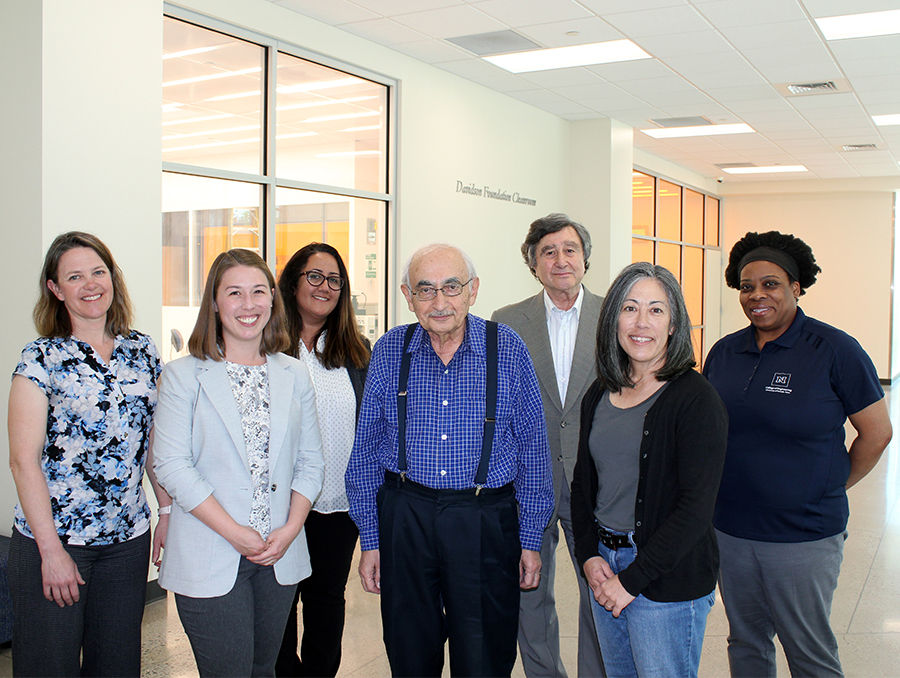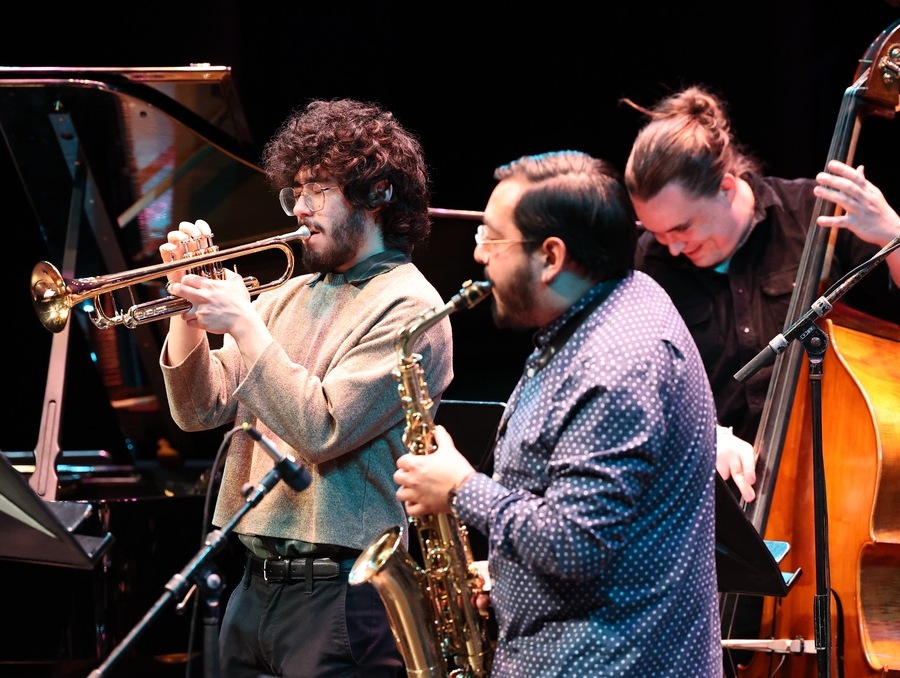More than 30 students from northern Nevada middle schools competed this weekend at the University of Nevada, Reno for the chance to go to the nation’s Future City contest in Washington, D.C., in February, and there was no lack of creativity to be found among the 11 teams.
“For some of our buildings, we used a laundry bottle cap, a pepper grinder, a CD container and a Milk Duds box,” Haley Etchart, a member of the Harambe team, said. “The street lights are painted Q-Tips and we’ve even used the bottom of a yogurt cup here for support.”
Sponsored by the nation’s professional engineering community as part of National Engineers Week, the Future City competition fosters interest in science, technology, math and engineering among young people. Students work in teams under the guidance of a teacher and a volunteer engineer mentor to design and build a city of tomorrow. This year’s regional competition was held in the Harry Reid Engineering Laboratory building on the east side of campus.
It’s billed as the nation’s largest engineering education program and is in its 16th year. Students first create cities on computers using SimCity 3000 software. Then they build three-dimensional, tabletop models to scale. Models must use recycled materials and can cost no more than $100. Students also write brief abstracts describing their city and must present and defend their designs at the competition before a panel of engineer judges who test the depth of the teams’ knowledge.
The Buenaventura team from the Writers Institute of Northern Nevada won the top spot this year. They will travel to the national finals in Washington, D.C., Feb. 18-20. The grand prize is a trip to the U.S. Space Camp in Huntsville, Ala. More than 30,000 students from 1,100 middle schools were expected to participate nationwide.
The Harambe team from Nevada Christian Home School placed second, and the Coral Academy of Science Ilayda team took third. Area 51 ½ from Silver Stage Middle School received an honorable mention.
This year’s topic was “Keeping Our City Infrastructure Healthy: Using Nanotechnology to Monitor City Structures and Systems.” Many engineers and researchers believe nanotechnology, generally described as technology operating at the molecular level, offers limitless potential. Students were required to incorporate nanotechnology into their designs and to have at least one moving part on their models.
“We’re so proud of these students,” Debbie Delauer, the K-12 coordinator for the College of Engineering, said. “The projects were incredibly creative and well planned, and while they were here, many parents, students, and their teacher mentors and judges commented how they appreciated getting the opportunity to see our buildings, classrooms and labs. We definitely hope we saw some future University engineering students in the group.”











